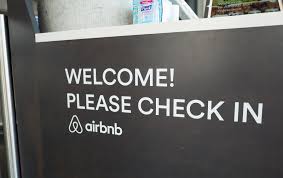 December 2016
December 2016
Homesharing, or short-term home rentals, existed long before Airbnb. Yet the ease in which it can now be done using Airbnb has turned homesharing into an easy way to make extra money.
In areas that are popular tourist spots, residential properties can be rented for much less than hotel space.
There are significant risks to homesharing. In a single family house these risks are primarily limited to the homeowner. In a condo building all condo residents are forced to take on these risks.
Many condominium documents prohibit short-term rentals. Some condo owners willingly ignore these risks to make a few extra dollars. These owners have chosen to treat the condo building as a hotel. By accepting money, these owners may be operating a commercial business without insurance, paying taxes or necessary licenses.
Some condo corporations may choose to ignore the risks and thus put all condo owners at risk. This risk is compounded when individuals are inappropriately granted access to common areas and amenities.
What happens when something goes wrong?
Liability – Strangers are being allowed in the building. There is liability if they attack someone or cause damage either to the suite or common areas.
Local Laws and Taxation – Revenue Canada requires tax to be paid on income. There is also HST to collect and submit. There may be licensing and safety requirements to comply with.
Lack of Insurance – Homeowners insurance is unlikely to cover business activities for a property identified as owner-occupied. Renters insurance is unlikely to cover business activities such as subleasing. If something is damaged or someone is injured and insurance coverage is not applicable, who pays? Building insurance costs can increase, or coverage terminated, if an insurer has concerns about short-term tenancies.



